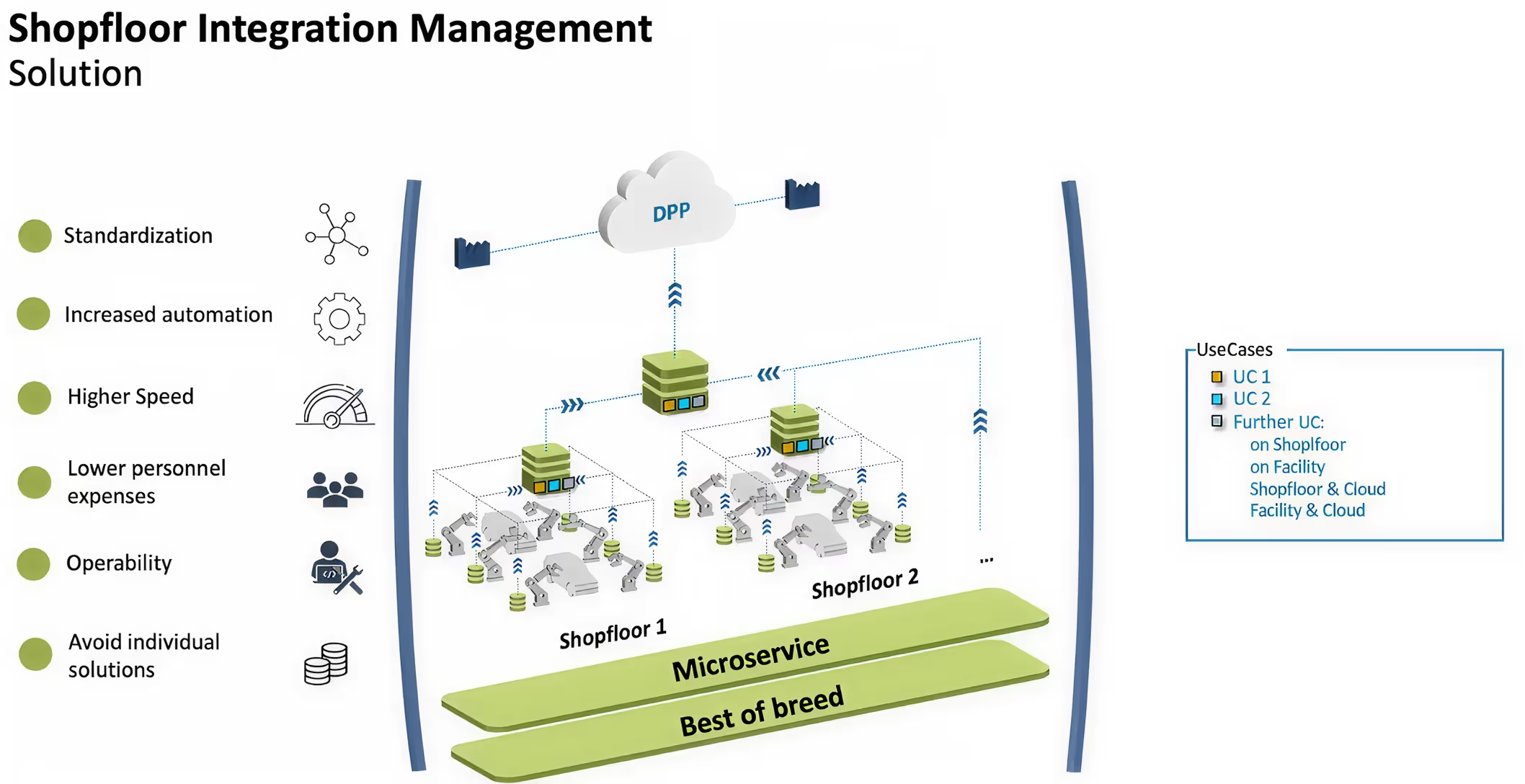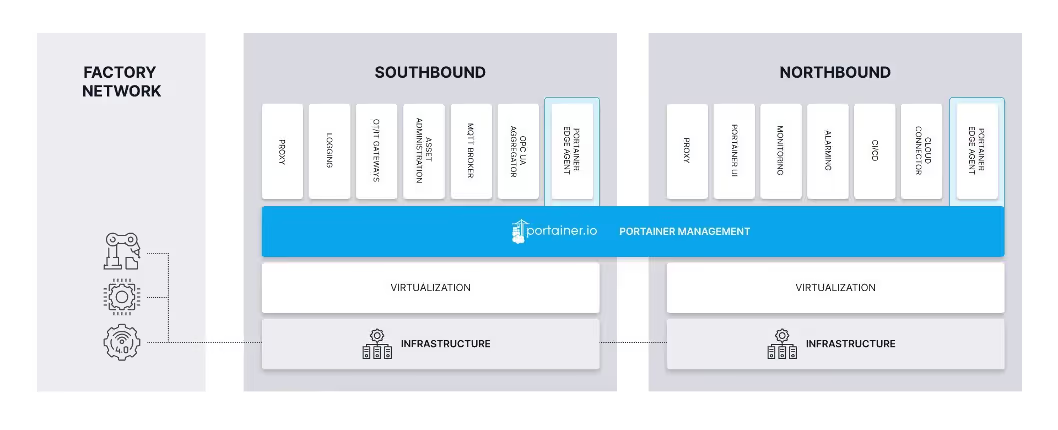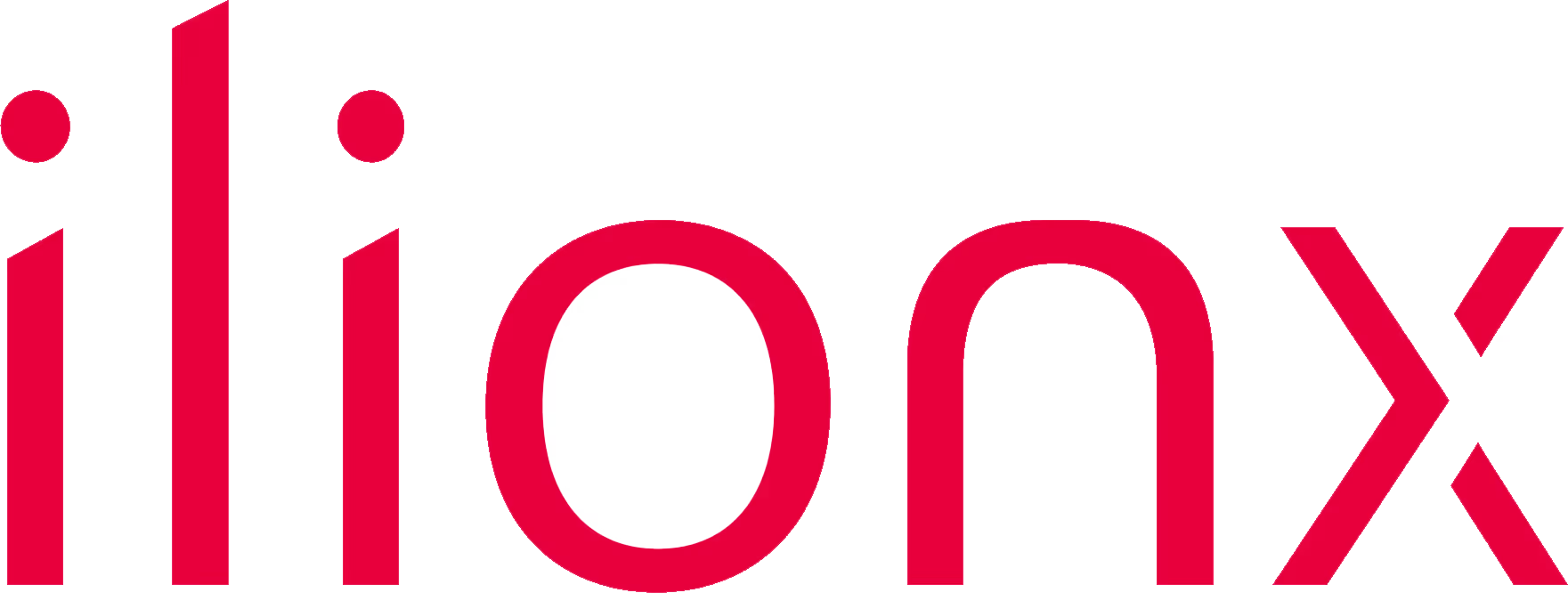Volkswagen
Shopfloor Integration Management for VW
.avif)
Business overview
Volkswagen AG, known internationally as the Volkswagen Group, is a German public multinational conglomerate manufacturer of passenger and commercial vehicles, motorcycles, engines and turbomachinery. Volkswagen partnered with Portainer to help securely manage their apps on their Shopfloor Integration Management (SIM) infrastructure.
The challenge
Before the release of SIM, the missing of standardization resulted in high investment costs and high personnel costs.
This can be illustrated using the example of setting up a new device. Initially, provisioning was handled by local maintenance staff. After connecting the device, the software was installed via USB, configured, and then checked for functionality. After the initial setup, it was assumed the device would run without issues for as long as possible. When an error occurred, the local maintenance staff needed to check the device at the shopfloor and, if necessary, reset it. This process reflects the significant effort and avoidable costs involved. With thousands of shopfloor devices across various Volkswagen Group brands, the cost-saving potential becomes clear. Previously, different suppliers developed individual solutions to address these challenges, leading to a strong dependence on specific products. These standalone solutions were often incompatible with others and only partially integrated into VW’s environment. As these systems scaled, vendor lock-in became inevitable.
The real-world impact of smarter container management.
The solution
With the introduction of SIM, a scalable solution is now available to support shopfloor teams with the lifecycle management of their devices and to streamline maintenance processes. SIM was developed for loT data with low to intermediate frequencies and enables a highly automated application management through a production-oriented user interface. Every shopfloor device that supports container technology can be integrated into SIM. Each component is set up as a microservice and managed by Portainer. IoT applications can be remotely deployed via the user interface, which also provides detailed insights about each specific device. This approach lays the foundation for effective IT asset management.
As a first step, a public cloud connector was released to query data from the shopfloor. Data is collected, for example via Softing’s edgeConnectors, then preprocessed, filtered, and transferred to the Digital Production Platform (DPP), Volkswagen’s proprietary cloud solution aimed at improving productivity in production and logistics across its plants.
Thus, SIM is a scalable solution which ensures that only the required information is forwarded to the platform and unnecessary costs are eliminated. In addition, due to the strategic decision to only rely on standardized interfaces, protocols, and technology like software containers, a vendor lock-in is avoided. This is enabled by Portainer’s agnostic support for any container runtime or orchestrator.
Overall, SIM delivers containerized connectivity as a service, tailored to shopfloor-specific use cases, and compatible with a wide range of runtime environments.
The SIM support team can deliver a full local installation within two weeks and provides operational assistance. Two major DPP use cases are currently in place: VW2 Assembly Control and Optimization Filling Equipment. The SIM team also supports hosting and provides the necessary connectivity for several on-premise applications.
The entire SIM project team is proud of its outstanding achievements. For more information or questions, please contact:
Torsten Volkmar (VW SIM Project Team)
Tobias Mühlnikel (CPO & CTO, Edge Business Unit, Portainer.io)
Volkswagen partnered with Portainer to help securely manage their apps on their Shopfloor Integration Management (SIM) infrastructure.

















.avif)

.avif)


